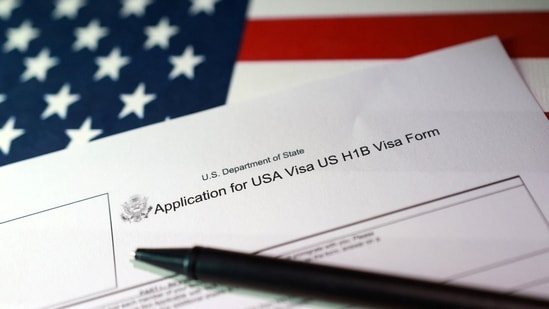Indian professionals have received a major blow in the United States. President Donald Trump has issued an order to impose a hefty $100,000 (around ₹88 lakh) fee on the new H-1B visa. This order came into effect from Sunday. The fee is now so high that it exceeds the salaries of many applicants. Experts say this decision will discourage many companies from sponsoring new employees, limiting job opportunities to only select and highly skilled workers.
Among H-1B visa holders, Indians make up the largest share. India leads far ahead of countries like China, Canada, and South Korea in this category. This new fee will directly impact the Indian IT sector and the professionals working there.
Alternative to H-1B Visa
Experts note that companies have already been using L-1 visas to avoid uncertainties related to H-1B visas. With the new $100,000 fee, more companies may shift towards L-1 visas. However, the L-1 visa is granted only when an employee has worked at the company’s foreign office for at least one year, making it unsuitable for new hires.
What is the L-1 Visa?
The L-1 visa is a U.S. non-immigrant visa that allows multinational companies to temporarily transfer certain employees from their foreign offices to the U.S. It has two categories:
- L-1A visa: For managers and executives.
- L-1B visa: For employees with specialized knowledge, such as expertise in the company’s technology or specific processes.
Conditions for L-1 Visa
L-1 visas have strict requirements:
- The employee must have worked at the company’s foreign office for at least one continuous year within the last three years.
- There must be a parent, subsidiary, affiliate, or branch relationship between the U.S. and foreign office.
- The U.S. office must be actively engaged in business.
Also Read: This Country Announces Visa-Free Entry for Indians – Travel Freely Without a Visa
Challenges with L-1 Visa
When H-1B fees increase, the use of L-1 visas also comes under greater scrutiny. “Special knowledge” cases, in particular, face strict checks. If companies increasingly use L-1 visas to bypass the H-1B route, U.S. authorities may tighten scrutiny, resulting in more paperwork and a higher chance of visa rejection.
Opportunity for India
The increase in H-1B visa fees could also create an unexpected opportunity for India. The impact of this decision is already visible. Companies like Microsoft and Amazon have advised H-1B and H-4 employees to return to the U.S. immediately. Experts believe that instead of securing U.S. jobs, this move could hurt America’s innovation capacity. Consequently, companies may shift jobs abroad, creating a significant advantage for countries like India.


